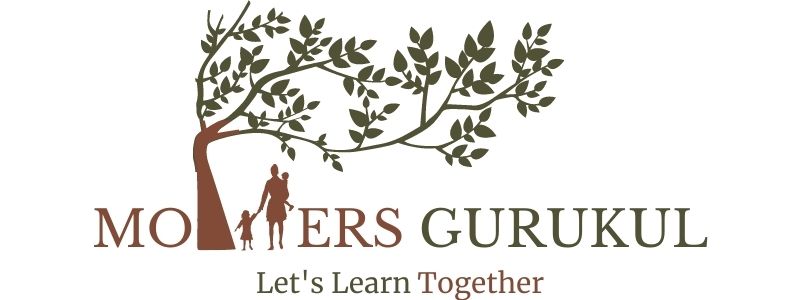Just imagine, if for three days (that is also little too much to say) we do not get Internet? We feel so helpless as if that is the only survival. Whether it is iPad, iPod, iPhone, agree or not, it is making us dependent day-by-day. Today’s guest post – ‘Smart Technology: Is it making us smart, or not?’ is from one of the Mothers Gurukul readers who chose to be anonymous. The writing style is quite straight forward. But after reading it, I decided to publish it as we all want our next generation to use the technology in best possible way.
Everything around us is turning Smart. Smart phone, Smart TV, Smart tablet, Smart watch, Smart home and the list goes on. Growing up, I was told that if you surround yourself with smart people, some of that smartness will rub off on you.
I wish however, that we can say the same thing for smart devices. But can we? How does surrounding yourself with smart devices affect you? That’s what I want to talk about. Merriam Webster defines “Smart” as “very good at learning or thinking about things” and “dumb” as somebody “lacking the human power of speech” or “temporarily unable to speak”.
Now, if you think about our moments with our smart devices whether it is phone, a tablet, a watch or computer, you soon realize that whenever we are using these devices, in most cases, we are temporarily moving towards the “Not smart” end of intelligence spectrum. While using these devices, we not only get disconnected with outer world but also with our own learning self. It has become so easy to get information that we often tend to just shut off our thinking, analyzing and memorizing part of the brain.
A good personal example would be the use of GPS. GPS is a great technology and has made our lives so much easier. Remember the times, when we carried printed maps before any road trips and one wrong turn caused many problems thereafter. I used to be pretty good with directions and took pride that if I have been to a place once I will remember the directions. I recently came to know the impact of GPS when I couldn’t remember a friend’s place where I have been twice before. I realized that, in the past, each time I had used GPS to get there and that just made me not use my brain to think about route and store pictures of streets and landmarks in my brain. I just kept following the sensual voice coming out of GPS and got there. This time was different; I ran out of battery of my phone and had no GPS.
If you think, it is only natural to take the easier path available. However, one should always consider cost of taking easier path. Here is another example, growing up in India; calculators were not allowed until high school. We were required to remember basic multiplications tables up to 20. We developed the tricks and mental maps to retrieve the information quickly. The idea was to have us do simple math calculations in our head or on paper by hand. The key word here is “simple”. Those “simple” calculations impressed my colleagues when I did them without using calculator in office the other day. Somebody said that you Asians are good at math. In my opinion, it is wrong assessment. Being good at math has nothing to do with being from a particular ethnicity. The real reason is “brain plasticity” . Our brain functions on the simple principal of “use it or lose it”.
These are just some examples showing how use of technology could affect our brains. Technology is also affecting us in other ways. Some of you might have already seen this great video talking about the impact of social media. Here is the link.
Now, I want to clarify that I am not against technology. In fact, I make my living because of technology and I am all for its advancement. The very reason I am able to reach out to you in an efficient way, is technology. My argument is however about its use and way we approach it. Can we balance the use of technology versus use of our brains?
One might also say why to bother. Maybe we are in just a transition phase and still learning to deal with flood of information. Why not enjoy the tools that are suddenly becoming available to make our lives easy and fun? May be it will take its own course and settle down for the best.
But those are big “Maybes” and personally I think we shouldn’t leave technology to take its course and let it control us rather than us controlling it. After all, we (human beings) only developed it then why not go a step further and try to use it in a way so it enriches our lives, relationships, thinking etc. instead of the other way.
Only technology is useless if there is no or limited brain left to use it. Even great Steve Jobs in this famous commencement speech at Stanford talked about calligraphy course he took and how that contributed towards design of Apple products that we all love today.
Now, that’s the balance I am talking about. Why not also promote handwriting skills while coming up with more beautiful fonts? Why not also promote “non-calculator” math skills while making faster and faster computers who could do gazillion calculations in a second? Why not also teach kids to have a real unplugged social time and let their phones/tablets take a much needed break while Apples and Samsungs of the world keep bringing more magical devices? Why not…
I would love to get your feedback and hear your thoughts on this.


Love the post, very true and very well written
Thanks Mona for checking. You are right, we need to think from this side as well.
Pen to paper connection will always helps in nurturing your reading and writing skills. Most unfortunately it will end soon because of the revolution in Digital world. I really enjoyed your post . Thank you .
I agree Padmini Bhat. Everything is getting so much technology driven that the conventional ways of connecting with others have started loosing its importance.
I am glad you liked the post.